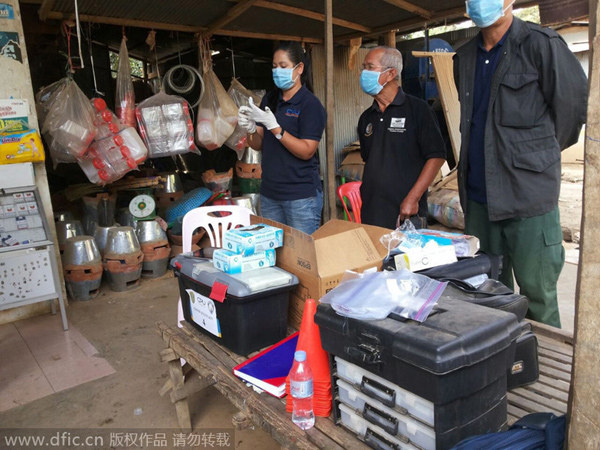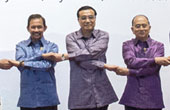Cambodian doctor faces murder rap in HIV outbreak
(Agencies) Updated: 2014-12-23 16:44PHNOM PENH, Cambodia - An unlicensed medical practitioner suspected of negligently infecting more than 100 villagers in northwestern Cambodia with the virus that causes AIDS was charged Monday with murder and other crimes, a prosecutor said.
|
 |
|
Cambodian officials prepare to inspect the perimeter of a nurse house in Roka commune in Battambang province, Cambodia, December 17, 2014. [Photo/IC] |
Yem Chhrin was charged with murder carried out with cruelty, intentionally spreading HIV - human immunodeficiency virus - and practicing medicine without a license, said Nuon San, a Battambang provincial court prosecutor.
Health officials say 106 people out of more than 800 tested in Roka village were found to have the virus.
Yem Chhrin is being held pending further investigation. Nuon San declined to say what penalty might be applied for the crimes. Cambodia has no death sentence.
Yem Chhrin was arrested over the weekend after being taken into protective custody last week, said Seng Loch, a senior provincial police officer. He said the suspect acknowledged reusing syringes for treatment of patients, a practice that can spread HIV.
"He told us that he had no intention of spreading HIV to villagers. He doesn't know who among his patients was infected with HIV," Seng Loch said, adding that Yem Chhrin claimed to frequently change the needles he used for injections.
The police officer said that Nhem Chhrin, 53, had been popular in the community because of his kindness and health care treatments, which he had been carrying out for many years even though he had no formal medical training or certification.
Cambodian media have reported that the infected villagers range in age from 3 to 82 years old and include Buddhist monks.
The Health Ministry said in a statement last week that a team including experts from US and UN agencies had been sent to Battambang province "to determine the source, extent and chain of transmission of HIV infection."
Cambodia had a high HIV prevalence rate of 2.0 percent in 1998, but an aggressive campaign to promote safe sex brought the figure down to an estimated 0.7 percent this year, according to the UN agency that spearheads the worldwide fight against AIDS.






